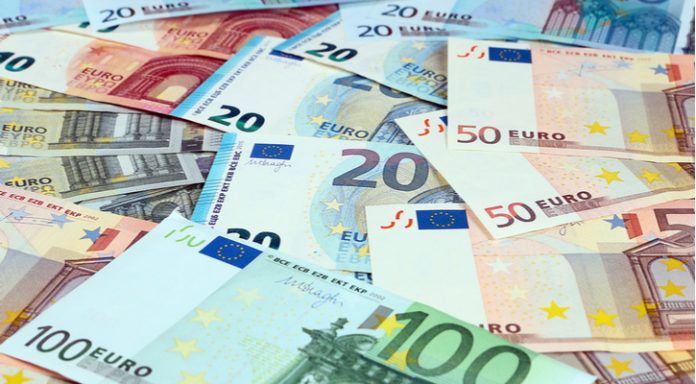The pound fell versus the euro yesterday afternoon to a low of 1.1354 and stayed there until yesterday evening when it regained its losses and rose against the euro to 1.1437 and remained more-or-less at that level throughout yesterday evening and today morning.
| What do these figures mean? |
|---|
|
When measuring the value of a pair of currencies, one set equals 1 unit and the other shows the current equivalent. As the market moves, the amount will vary from minute to minute. For example, it could be written: 1 GBP = 1.13990 EUR Here, £1 is equivalent to approximately €1.14. This specifically measures the pound’s worth against the euro. If the euro amount increases in this pairing, it’s positive for the pound. Or, if you were looking at it the other way around: 1 EUR = 0.87271 GBP In this example, €1 is equivalent to approximately £0.87. This measures the euro’s worth versus the British pound. If the sterling number gets larger, it’s good news for the euro. |
The euros short, but significant rise was due to strong economic data coming out of Europe in the form of unemployment data. Germany’s unemployment rate reached a record breaking low while Italy also recorded its lowest jobless rate since the eurozone crisis. Unemployment levels in Germany fell from 5.5 percent to 5.4 percent, its lowest level in a decade. In Italy, the unemployment rate fell from 10.9 percent to 10.8 percent, its lowest level since 2012. These numbers, for both Germany and Italy, were better than what the analysts had expected. Both these are very important economies within the EU bloc and indicate that the health of EU economy is robust, giving a much needed push for investment in the euro.
| Why does strong economic data boost a country’s currency? |
|---|
| Solid economic indicators point to a strong economy. Strong economies have strong currencies because institutions look to invest in countries where growth prospects are high. These institutions require local currency to invest in the country, thus increasing demand and pushing up the money’s worth. So, when a country or region has good economic news, the value of the currency tends to rise. |
For a short while, the pound came in pressure from political uncertainty when reports came in suggesting that EU officials told British financiers they will not agree to a deal that would allow finance companies to operate in each other’s’ markets without barriers. This would have had a negative impact on Britain. However, despite this, and very strong economic data coming out of Germany and Italy, the pound managed to resist this push due to new political developments concerning Brexit. Several important political leaders from the UK expressed optimism over arriving at a positive post-Brexit trade deal. Under immense political uncertainty, this optimism gave much relief to pound investors and as a result the pound rallied.
| Why is a smooth Brexit good for the pound? |
|---|
| A smoother Brexit would be a scenario in which the economic consequences of leaving the European Union are minimised. This is favourable for the pound because the less the Brexit impact on the economy, the more likely that foreign investors will remain interested in the UK. Foreign investors need sterling to invest in the country and so the more GBP is purchased, the higher the demand and, thus, an increase in the currency’s value. |
No news in terms of economic data is expected out of the EU for the next two days. In its absence, investors will instead look forward to UK’s Purchasing Managers Index (PMI) for construction sector. The PMI is an index that surveys purchasing managers at businesses that comprise a given sector. It is a very important indicator for the health of UK’s economy as construction forms a very crucial part of it. Should the reading come in higher than expected, the pound might rally. Apart from this, investors will also play close attention to any new developments concerning post-Brexit trade deals between the UK and EU.
|
This article was initially published on TransferWise.com from the same author. The content at Currency Live is the sole opinion of the authors and in no way reflects the views of TransferWise Inc. |





